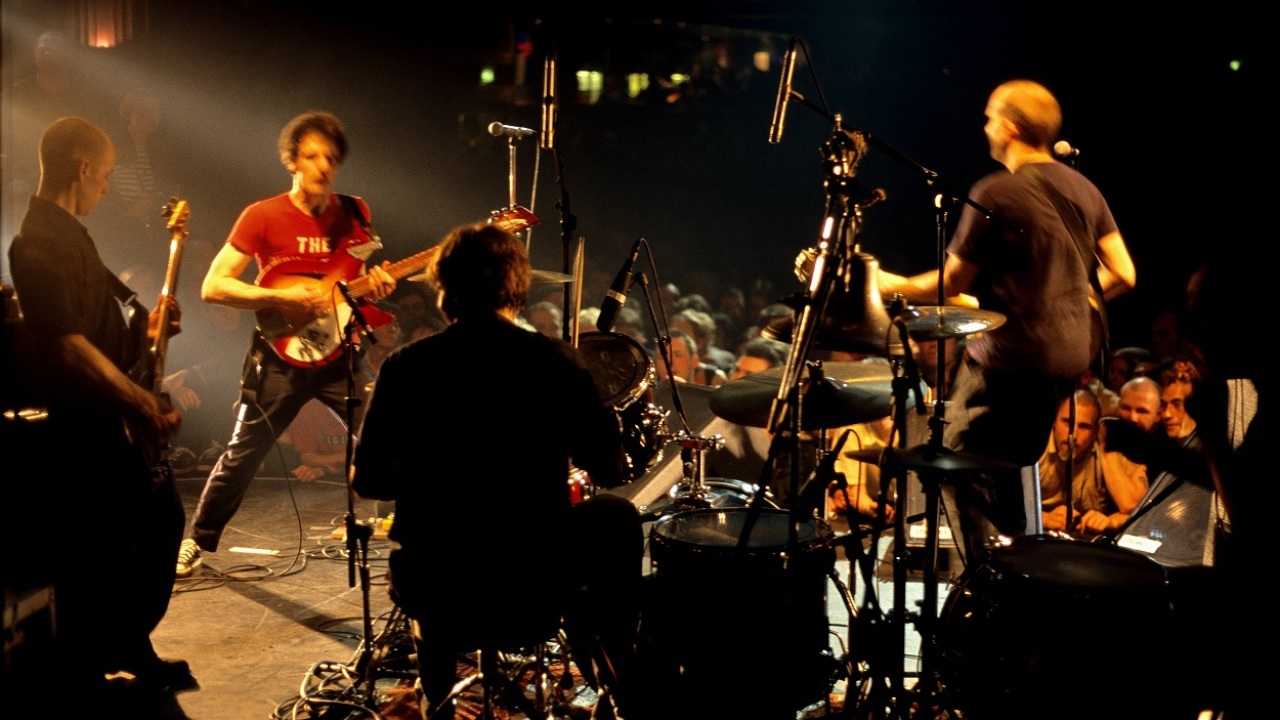Salad Days is a brilliant new film which documents the punk rock scene in Washington DC in the 1980s and early '90s, a period which saw bands such as Minor Threat, Bad Brains, Government Issue, Scream, Rites of Spring, Fugazi and Bikini Kill create and develop the blueprints for a self-sustaining, independent, DIY underground community.
Funded by a Kickstarter campaign and featuring in-depth interviews with key players from the DC area – Ian MacKaye, Henry Rollins and Dave Grohl among them – the film shows how a group of marginalised, alienated teenagers in the US capital took control of their own destiny and forged a genuinely inspirational, engaged and empowered culture which impacted far beyond the city’s borders.
TeamRock spoke with director/writer Scott Crawford about his labour of love, a documentary TeamRock’s Rae Alexandra hailed as “a vivid snapshot of what D.C. music was really, truly about.”
Could we start Scott by talking about your personal history with the DC punk scene?
“Sure. I started going to hardcore shows in ‘DC around ’83/’84 and was really taken by it. I was 12 years old, and had a huge appetite for learning more about the bands and the music, but I couldn’t find enough places to read about the scene so I thought ‘Well, I’ll just do it myself.’ So I started a fanzine called Metrozine, and did everything myself – writing the reviews, doing the interviews, Xerox-ing the pages, and selling it at shows. I ended up doing a compilation record with a bunch of bands that were around at the time, and then I actually started playing in a band myself, so kinda stopped writing about music and started playing it.”
So why did this seem like an opportune moment to document the scene?
“Well, I started work on Salad Days about four years ago. I love documentaries, and had been watching some great music documentaries, and I couldn’t figure out why there wasn’t one on DC, because there was so much great music in that scene and so many interesting people and it had such an influence. So then I thought maybe I’d try to tackle it. So I started interviewing people and then about a year into the process I realised I’d need additional funding in order to do the project justice, which is when I launched a Kickstarter campaign. We reached our goal on Kickstarter in six days, so that was a good sign that there was genuine interest in the documentary being made.”
The film contains some amazing footage of bands such as Minor Threat, Bad Brains, Fugazi, etc,. Presumably there was a lot of archive material to sift through…
“Oh, countless hours of it! Photos, videos tapes, audio recordings, live footage…and then I also conducted maybe one hundred separate interviews on top of that. It was a very long process, a lot longer than I had anticipated, but I’m really happy with the end result.”
To what extent is the film an exercise in nostalgia, as opposed to, say, offering up some ideas or lessons that viewers can apply in 2014?
“For me it was never a nostalgic thing, never about ‘Oh man, weren’t these great days?’ Don’t get me wrong, it was a great time that inspired me in many ways, but it was never a misty-eyed look back. I think what I’m trying to say in the film is that if people could do it then, when there was no structure in place, then they can certainly create their own world now. It’s not just about making music, I think there are inspirational lessons about building your own community, whatever your interests might be, so I hope people might pick up on that.”
Reviews of the film are now coming in from the first screenings: what’s the feedback been like so far?
“The feedback has been amazing, overwhelmingly positive, which is wonderful. I mean, the film is kinda my love letter to the scene, but I was obsessed with making sure that it was represented properly and covered in detail, and I wanted to make the people that were there proud, as well as appealing to a broader audience. Beyond that, I think the film kinda helped me re-establish what is important to me personally, and what I can do with my life moving forward: I started work on the film at something of a crossroads in my life where the magazine I’d started and been editor of for nearly eight years had become a casualty of the economic downturn, so I was having my own existential ‘How did I get here?’ moment and this really gave me a sense of direction again.”
So what’s the plan for Salad Days in the months ahead?
“Well, we’ve been selected for a few more film festivals which I can’t announce yet, and then we’ll be looking at doing a run in theatres from February, and finally the film will come out on DVD around summer time. It’s been such a long process, but it’s so rewarding to see things come together, and I really hope people will get a kick out of seeing this inspirational period documented.”

